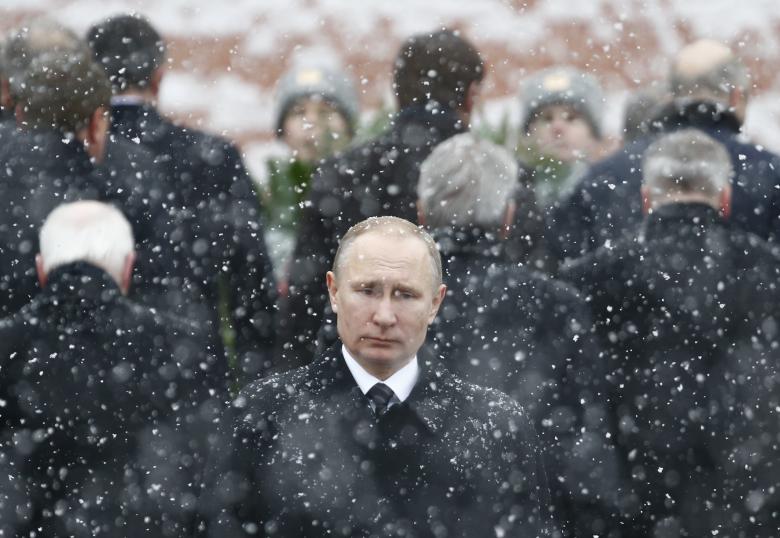
The United States is continuing its investigations of Russian interference in the 2016 U.S. presidential election; both sides have accused each other of arms treaty violations; and both countries are continuing to build up their positions across the globe as they prepare for a long-term struggle, according to Stratfor.
In addition, the United States has specified four areas — each with varying effects and degrees of political fallout — for further sanctions against Russia. The added pressure on the Kremlin comes as President Vladimir Putin faces re-election and Russia grows increasingly fragile.
Read alsoPutin has reasons not to start large-scale war - political scientistPresident Donald Trump signed the Countering America's Adversaries Through Sanctions Act in August, and it included provisions for expanding penalties in the coming years. Beginning in February, the U.S. Treasury Department will submit the details on possible expanded sanctions, though their general targets — sovereign debt and oligarchs — are already known. These penalties are connected mostly to the U.S. investigation into Russian interference during the 2016 presidential election, which has sent U.S. perceptions of Russia plummeting — particularly in Congress.
If the United States implements sanctions on Russian sovereign debt, Western investors (beyond American) could be spooked away from buying it, according to Stratfor.
Read alsoMcMaster says U.S. must reveal 'insidious' Russian meddling to prevent further attacks - RFE/RLAnother sanctions option that has caught the Kremlin's attention will be part of a second U.S. Treasury Department report to be released in February. It will outline the most significant Kremlin-tied oligarchs, the silovarchs, their net worth, evidence of corruption, their business ties abroad, their assets abroad and their sources of income.
Their families (wives, children, parents and siblings) and associates will be subject to sanctions, as will their assets. In addition, their children could even be prevented from studying abroad. The scope of this option is starkly different from the current sanctions on Russian personalities. Those Kremlin-tied oligarchs mostly keep their assets and lives inside Russia, and they are also directly tied to Russian foreign policy — mostly to the conflict in Ukraine. Expanding the list to the oligarchs and silovarchs who are Putin's personal cronies comes closer to directly targeting the president.
Read alsoBloomberg: Interpol blocks Russia request to arrest Hermitage's BrowderThough the Europeans are not necessarily on board with either of the aforementioned measures, they could agree to sanctions over human rights. The United States has expanded the Magnitsky Act over the years, turning it from a vehicle for sanctions on people responsible for the Russian accountant's death to one targeting global human right offenses. The original act was adopted by a handful of Western allies, including Canada, the United Kingdom, Estonia and Lithuania. The only high-ranking individual on the sanctions list until recently was Alexander Bastrykin, head of Russia's Investigative Committee.
However, on Dec. 20, the Treasury Department expanded the list to include one of Russia's most powerful and controversial figures: Chechen leader Ramzan Kadyrov. He is accused of being involved in a purge of homosexual men in his region this year. Dozens of gay or bisexual men have fled Chechnya, though Kadyrov denies the accusations. He responded in his usual way: with a rant on Instagram. He blasted the sanctions, then mocked their impact because he says he has no assets in the United States and doesn't want to travel there.
Read alsoU.S. hits Russian missile designer with export restrictions over treaty dispute – mediaNext year the United States is likely to impose sanctions on Russian defense companies that provide technology or development that violates the Intermediate-Range Nuclear Forces Treaty (INF Treaty).
So for the United States and Russia, 2018 is shaping up to be another contentious year. While Washington is laying out the tools it can use against Moscow, Russia is getting ready for even tougher relations by insulating its economy and building bridges to the Asia-Pacific and the Middle East, Stratfor concluded.

